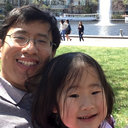Secretion of antidiuretic hormone in children with obstructive sleep apnea-hypopnea syndrome.
Palavras-chave
Resumo
CONCLUSIONS
Obstructive sleep apnea-hypopnea syndrome (OSAHS) in children with hypoxemia might influence the nocturnal secretion of antidiuretic hormone (ADH) that is associated with polyuria, even nocturia.
OBJECTIVE
The impact of OSAHS on the secretion levels of ADH was studied in pediatric patients with adenotonsillar hypertrophy.
METHODS
Forty-eight children (28 with OSAHS, 20 as normal controls) were recruited in this study. Respiratory indexes of all subjects were monitored by polysomnography and 12-h urinary volume was recorded during sleep. Vein blood was sampled to detect the levels of ADH in serum using a radioimmunoassay technique, both before and after adenotonsillectomy.
RESULTS
After surgery for OSAHS, the mean value of the apnea-hypopnea index (AHI) decreased (from 17.36±2.61 to 3.32±1.41, p<0.001), lowest arterial oxygen saturation (LSaO(2)) increased (from 78.34±13.44 to 95.35±6.24, p<0.001), urine volume (UV) in nocturnal 12 h reduced (from 492±90 to 332±56, p<0.001), and ADH level increased (from 63.08±35.15 to 83.10±21.05, p<0.05). The differences in UV and ADH between postoperative children and healthy controls were not statistically significant (both p>0.05).





